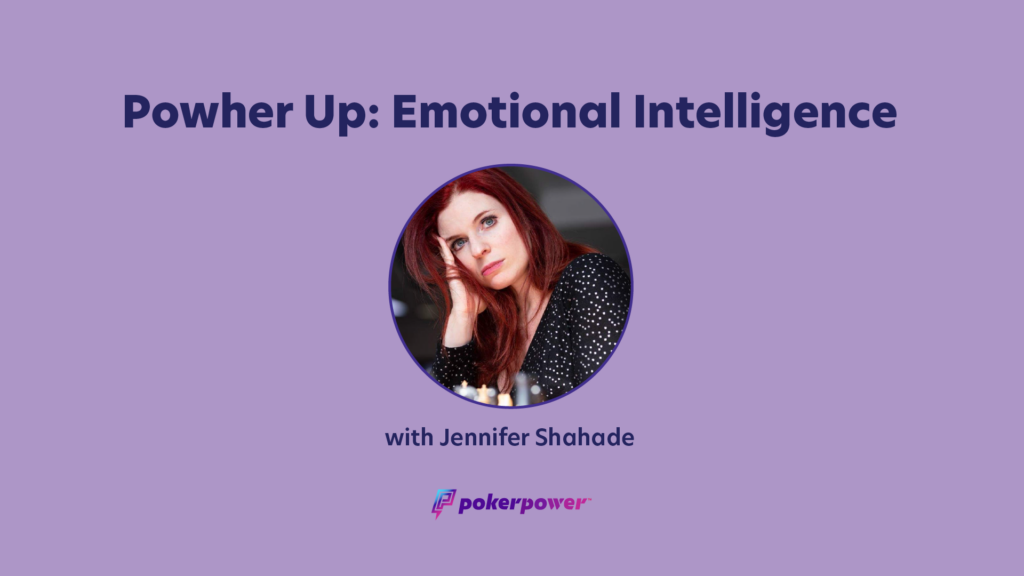Jennifer Shahade is a two-time U.S. Women’s Chess Champion, author, speaker, and PokerStars Ambassador. The first female to win the US Junior Open, Jennifer is passionate about empowerment and creative work around the games she loves most, chess and poker. She is the author of Chess Queens, and Play Like a Girl, books that, along with her work with US Chess Women and Poker Poker, are making the games more inclusive. Jennifer leads instruction and sits on the Advisory Board at Poker Power.
Jennifer shares why emotional intelligence is such an integral part of poker and life.
Tells are telling! As an expert on emotional intelligence, how has learning poker broadened your understanding of the value of the game to real life? How do you use emotional intelligence and perception to impact your actions on and off the felt?
When you’re playing poker, you have to be really attuned to your own image, and what you’re projecting. I remember one thing I really struggled with during my early years of playing poker (especially playing live poker) was my bet sizing.
If I had a really good hand, I would often try to bet a very precise size – getting the right number of chips – 5,200 or 5,250. Whereas, when I would bluff, I’d often throw out three chips, whatever that was – 1,500 or 3,000. Becoming cognizant of this habit was extremely valuable – because I stopped, and tried to use it to trick my opponents. More importantly, I began to recognize this habit in other players. Especially players who were new to playing poker or new to those playing in-person.
This is something you should look for in live poker. Be mindful of your own bet sizing and pay close attention if you’re tweaking it based on your hand and your setting.
When you’re playing poker you have to be cognizant of your own emotional cues. Was there a specific incident that made you aware of something you did subconsciously?
Poker has made me more aware of emotional cues in real life and at the poker table. The best example of this is timing. How much you bet and the way you put chips into the pot are both important. But, how quickly you do it, is just as important. How long does it take you before you make your play? That can tell others a lot about your hand. If you play too quickly, it’s obvious that you have an obvious decision. If you think too long, it may make it clear that you’re bluffing. You want to find the sweet spot, by not signifying what you have based on the amount of time you take to think.
This is applicable to real life. How quickly do you respond to a text or an email? The speed may be conveying more information than the content of your message. You don’t want to reply instantly as if you’re desperately awaiting their response. But, you also don’t want to wait too long and appear disinterested in whatever opportunity it is. That could be a business opportunity or even a romantic opportunity. The key is timing. It’s not just about how you bet or how much you bet, but about how quickly you do.
With Zogo’s 14, bite-sized lessons on poker basics, you get brief tidbits regarding tells. Why is this so important to learn early on?
For someone who is just learning poker, it’s vital to think about all the different elements of the game, including tells. I really like the way Zogo provides these bite-size tips about tells from the get-go.
Ready to empower yourself through poker? Sign up for our community lessons today!



